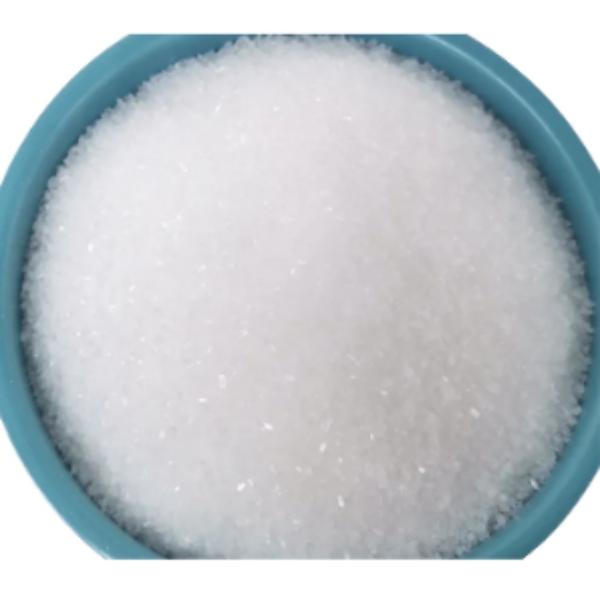Beyond the gym, creatine monohydrate is making waves as a cognitive enhancer that might just be the brain boost you’ve been missing.
You probably know creatine monohydrate as a popular sports supplement among athletes and fitness enthusiasts. But did you know that this powerful compound does more than just help build muscle?
Recent research reveals that creatine monohydrate offers significant cognitive benefits, particularly for those whose diets may be lacking in natural creatine sources.
Let’s explore how this supplement can do more than enhance your physical performance—it might also sharpen your mind.
What Exactly is Creatine Monohydrate?
Creatine monohydrate is a natural compound with a structure similar to amino acids. Your body produces it naturally in the liver, kidneys, and pancreas, and you can also get it from foods like red meat, pork, and fish.
Approximately 95% of your body’s creatine is stored in skeletal muscle, with the remaining 5% in various other tissues, including the brain.
Here’s a fascinating fact: to get just 1 gram of creatine from food, you’d need to eat about 450 grams (almost a pound!) of raw beef. This is why supplements have become such a popular and cost-effective way to increase creatine levels.
How Creatine Powers Your Brain
You might be wondering what a compound mostly stored in muscles has to do with brain function. The answer lies in how your brain produces energy.
Like your muscles, your brain requires a constant supply of adenosine triphosphate (ATP) to function optimally. ATP is the primary energy currency of all cells, including brain cells. Creatine helps regenerate ATP quickly, providing a ready energy source during high-demand periods.
Think of creatine as a backup power generator for your brain—when energy demands spike, it kicks in to ensure a steady supply of fuel for cognitive processes.
This energy-supporting role becomes particularly important during mentally challenging tasks or when you need to maintain focus for extended periods.
What Research Shows About Creatine and Cognition
Scientific studies have begun to uncover some impressive cognitive benefits of creatine supplementation:
- Enhanced memory performance: Research has shown that creatine supplementation improved performance in number recall tests, especially in more challenging memory tasks. The more demanding the cognitive task, the more noticeable the effects of creatine appear to be.
- Potential neuroprotective effects: Research suggests creatine may offer support for certain neurological conditions and help maintain overall brain health.
- Special benefits for specific groups: A study highlighted that vegetarians and vegans, who typically have lower creatine stores due to their dietary restrictions, may experience more pronounced cognitive benefits from supplementation.
Who Might Benefit Most from Cognitive Support?
While anyone might potentially experience brain benefits from creatine monohydrate, certain groups may notice more significant effects:
- Vegetarians and vegans: Since their diets typically lack natural creatine sources, they often have lower baseline creatine levels
- Those experiencing mental fatigue: If you’re dealing with demanding mental tasks or need sustained focus, creatine may provide that extra cognitive energy boost
- Older adults: While more research is needed, some studies suggest potential neuroprotective benefits that could support brain health as we age
Safety and Usage Considerations
Based on an extensive analysis of global clinical trials encompassing over 26,000 participants, creatine monohydrate supplementation has been scientifically confirmed as having no significant correlation with the risk of side effects. This includes both long-term and high-dose usage.
Some people might experience mild stomach discomfort when first taking creatine, but this can often be minimized by taking it with food and ensuring proper hydration.
The standard recommended dose for cognitive benefits is similar to that for physical performance: 3-5 grams daily. Some people choose to take it with carbohydrates, as this may enhance creatine absorption into cells.
How to Choose a Quality Creatine Supplement
Not all creatine supplements are created equal. When selecting a product:
- Look for creatine monohydrate: This is the most researched form and has consistently proven effective
- Check purity: High-quality products will have 99% purity or higher
- Avoid unnecessary additives: Some products contain fillers or sweeteners that you may want to avoid
- Consider third-party testing: Products that have been independently tested for quality and purity provide extra assurance
Final Thoughts: Is Creatine Right for Your Brain?
While creatine monohydrate isn’t a magic pill for instant genius, the evidence suggests it can provide meaningful cognitive support—especially for those with lower dietary creatine intake or higher mental energy demands.
As with any supplement, it’s wise to consult with a healthcare professional before starting, particularly if you have any pre-existing health conditions.
The fascinating dual role of creatine monohydrate—supporting both physical and mental performance—makes it a unique supplement worth considering for anyone looking to enhance their overall health and cognitive function.
Post time: Sep-11-2025





